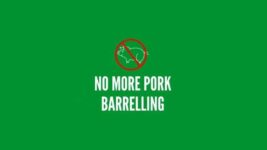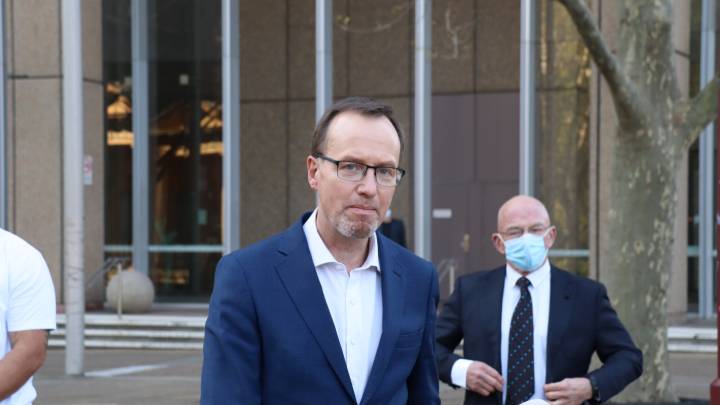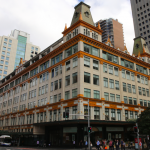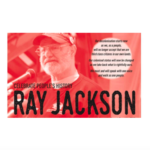Ban Pork Barrelling: Shoebridge on Laws to Criminalise the Shady Political Practice

The story is now well known. On 1 October, the Independent Commission Against Corruption announced it’s turning its investigation Operation Keppel upon then NSW premier Gladys Berejiklian’s conduct in relation to two specific instances of grants funding distribution.
The ICAC will deliberate upon whether Berejiklian breached public trust in having facilitated the favourable distribution of grants that in some way benefited former NSW MP Daryl Maguire, whom she was in a secret relationship with.
In response to the ICAC decision, Berejiklian announced that she would be stepping down from her role as premier, as well as retiring from politics completely.
Although the anticorruption watchdog’s announcement didn’t necessitate her withdrawal from public office, that was her decision.
The end of Berejiklian’s term as state premier comes after a year of revelations around how the NSW Liberal Nationals government has dealt with grants funding, which raised questions as to its preferencing of its supporters in their distribution.
Buying votes
The practice of distributing public money to benefit government-held electorates for political gain is known as pork barrelling.
Indeed, former NSW deputy premier John Barilaro once publicly joked that his nickname is “Pork Barrel-aro”.
The NSW Public Accountability Committee late last year uncovered that the Berejiklian government had distributed 95 percent of $252 million from the Stronger Communities Fund to local governments in Coalition voting regions in the lead up to the last state election.
Berejiklian had signed off on $141.8 million of grants. She then had the documents detailing this illegally shredded. While Barilaro handed over $61.3 million worth of what he liked to call “investments”.
But the favourable distribution of taxpayer money didn’t stop there. The PAC uncovered a questionable grant to the Riverina Conservatorium of Music, which ICAC is looking into, as well as the deplorable distribution of bushfire relief to the detriment of certain communities.
The buck stops here
Over recent years, pork barrelling scandals have rocked the federal parliament in relation to the funding of sporting projects and carparks.
But while the uncovering and questioning of this practice reveals that the public considers it wrong, it is still completely legal.
As far as Berejiklian was concerned during fallout from the Stronger Communities revelations, nothing untoward had actually occurred. She publicly stated that all governments “curry favour” in this manner, and she accepted that the community wasn’t comfortable with it.
As NSW parliament reconvened after a long hiatus on Tuesday, Public Accountability Committee chair David Shoebridge gave notice that he’ll soon be introducing the Government Grants (Transparency and Impartiality) Bill 2021, which will aim to make pork barrelling illegal.
Sydney Criminal Lawyers spoke to NSW Greens MLC David Shoebridge about why this questionable practice isn’t illegal, what the difference in the political landscape would be if it had been criminalised a decade ago, and what he thinks about Berejiklian’s unelected replacement.

Over recent years, both state and federal politicians have been called out over pork barrelling scandals, and while the public is outraged by this behaviour and agrees that it’s wrong, it hasn’t been criminalised.
David, why is that the case?
There is so much self-interest on the part of the government of the day in this matter, which has prevented any clear statutory rules having been put in place.
Whilst oppositions may rail against the use of public money for such partisan purposes, it is an historical fact that as soon as they get in government, their zeal for reform dries up.
So, put simply, the self-interest of the government of the day – that normally has the numbers in parliament – explains, almost entirely, the lack of reform in this space.
So, what sort of law do you propose is passed?
We’re in the process of drafting clear statutory requirements that require transparency at all stages of grants programs, where the value of the grants program exceeds $20 million.
There are also provisions to prevent the breaking up of a larger grants program into smaller ones to avoid the regulation.
The intent is to have some underpinning guidelines that are jointly approved by both our parliamentary committee and an external body, such as the auditor general.
The finer details of that legislation are still being drafted.
If such a law had been passed a decade ago, how might it have changed some of the scenarios that the Public Accountability Committee has helped expose over the last year?
This kind of public sector reform would have entirely prevented the abuse of a quarter of billion dollars through the Stronger Communities Scheme, where that entire fund was handed out behind closed doors and on the basis of criteria that the government of the day could drive a truck through.
It would also have prevented the abuse of emergency relief funds in the form of the bush fire emergency grants, which saw desperately needed relief money handed out only to businesses that were large donors to the Coalition or were otherwise in Coalition-held electorates.
The need for clear rules has been apparent for some time, but it has become critical over the last few years as the scale of grant programs has exploded in NSW and the Commonwealth.
A lot of people in the community have lamented the resignation of Gladys Berejiklian and have sought to blame the ICAC for it. What are your thoughts on these assertions?
ICAC was doing its job. And it continues to do its job as an essential anticorruption body.
There is a suggestion that ICAC should have delayed its hearings based upon its reading of the politics of the day and allow the premier to continue to be the premier until the conclusion of whatever the next stage of dealing with the COVID pandemic is.
I have to say, that kind of commentary fundamentally misunderstands the idea of an “independent” commission against corruption.
If they are to be independent, they have to make their decisions based upon the evidence, and not having an eye to the day-to-day politics of NSW.
That kind of assessment would fundamentally undermine its independence.
And with the resignation of Berejiklian, Dominic Perrottet has become the 46th premier of the state. How do you consider his taking the top job?
Firstly, I’d point out that it wasn’t ICAC’s doing that saw Gladys Berejikilian resigned both as premier and as a member of parliament.
That was a decision that Gladys Berejiklian took given the fact that ICAC had informed the public that it was opening this further investigation.
The reasons Gladys Berejiklian had for leaving parliament under those circumstances have not been fully explained. But what we do know is, it was her decision and not ICAC.
We are now left with the premier that the Liberal Party has chosen for NSW. It is clearly not a premier that I would endorse or support.
His long history of aggressive privatisation, of unfair wage caps on the public sector and gross mismanagement when he had ministerial responsibility for icare, combine to raise real questions about his capacity to be the next premier of NSW.
And lastly, David, looking to the federal level. There is still no anticorruption watchdog there. Morrison says the ICAC model cannot be mirrored as it’s too good at its job. And his proposal has just been rubbished by the Centre for Public Integrity.
So, why do we need an oversight body with teeth in Canberra?
It’s a remarkable proposition from the prime minister, that simply because corruption hasn’t been uncovered in the absence of an independent anticorruption body that there is no corruption risk at the Commonwealth level.
What we have seen in the last few years, is the Commonwealth catching the NSW disease of abusing billion-dollar grant schemes for directly partisan purposes.
The proposed anticorruption body put forward by Scott Morrison would not have been able to look at any of the grant scandals over the last two to three years. And it also excludes from its jurisdiction reviewing pretty much any ministerial determinations.
Now, that is not an independent watchdog. It is more of a politician’s poodle. And clearly, it is not the right animal for the job.







